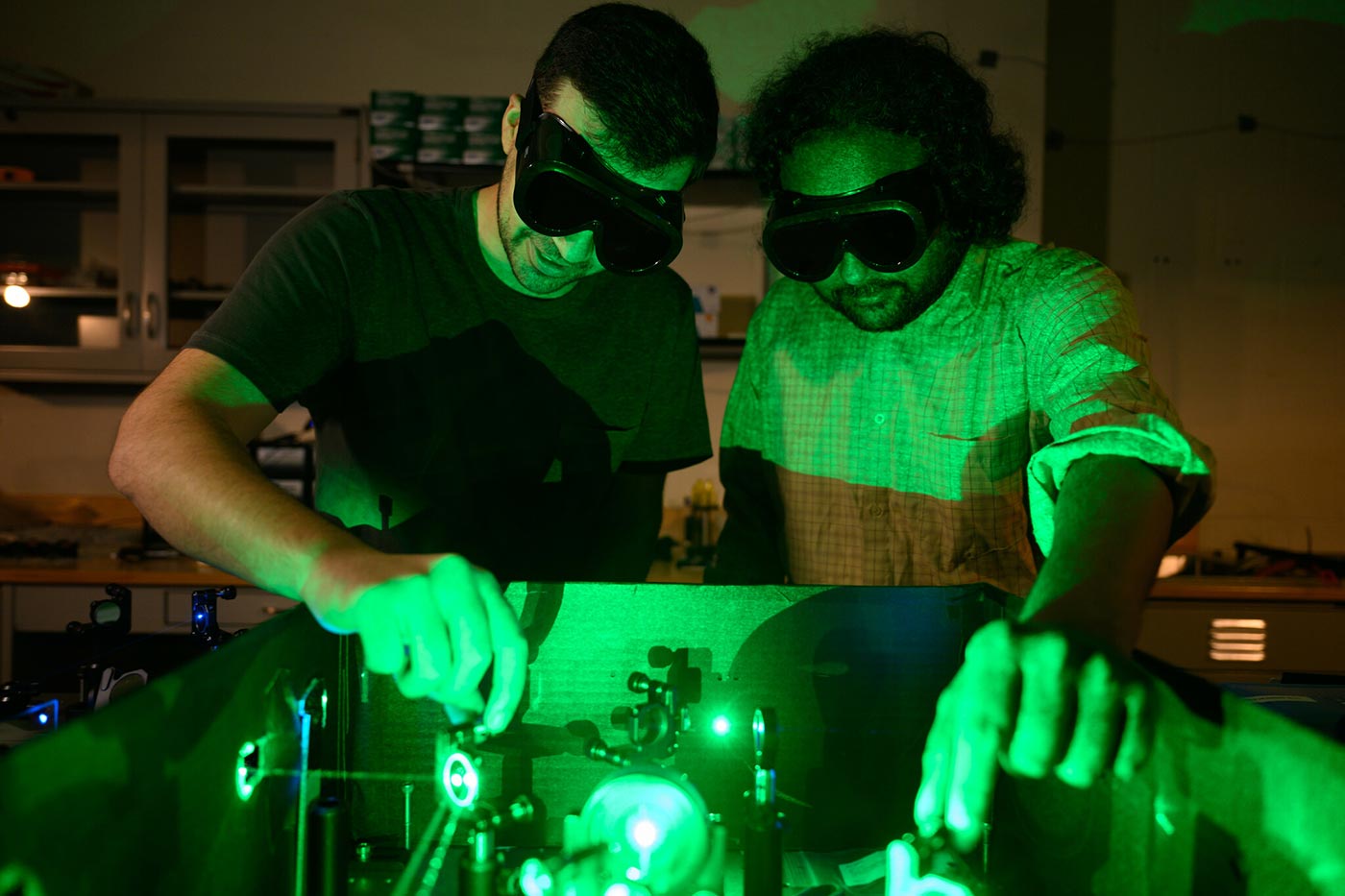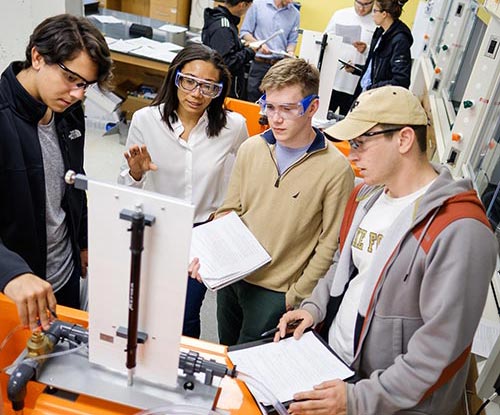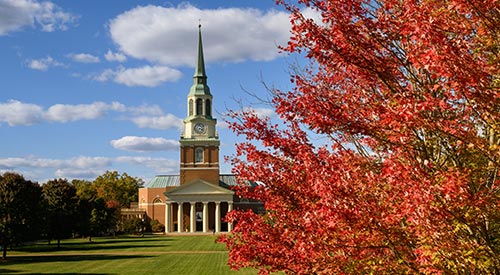Physics

Physics Degree
Bachelor of Science, Bachelor of Arts, Minor
Program Type:
Major, Minor
Career Path:
STEM (Science)
Program Site:
College or School:
Why study Physics?
Physics, the most basic of the sciences, has intellectual and useful aspects. The intellectual component resides in our innate desire to understand the physical characteristics of our universe.
- Because Physics often interacts with disciplines including law, business and medicine, majors are prepared for a variety of post-graduate experiences. Communication and teamwork skills are among the hallmarks of Wake Forest Physics grads.
- Dr. Oana Jurchescu and her team of undergraduate and graduate students are working on a wearable device that helps doctors and nurses discern the best doses, specific locations and other variables in delivering chemotherapy to cancer patients.
- Dr. Martin Guthold and his team are involved in manufacturing nanofibers, which are considered promising materials in tissue engineering for patients who have undergone traumatic injury.
- Over time, five Physics majors have earned a total of six prestigious national scholarships for further study between them. Their honors include four Goldwater Scholarships, one Gates-Cambridge and one Fulbright.
The Physics degree is offered as a Bachelor of Science (B.S.), Bachelor of Arts (B.A.), and a minor.
What classes would I take?
Our model and curriculum educate the whole person and often help students discover interests they had never previously discovered. Students generally take 100-200 level courses during their first year of college, while registering for higher level courses as upperclassmen.
Sample courses* that you may take as a Physics student include:
100-200 level
- Astronomy
- The Physics of Music
- Physics and Chemistry of Environment
- Elementary Modern Physics
- Mechanics
300 level
- Biophysics
- Extragalactic Astronomy and Cosmology
- Physics of Biological Macromolecules
- Biophysical Methods Laboratory
- Quantum Physics
* Course availability and offerings can change at any time. Refer to the Academic Bulletin to view all major requirements.
What kind of experience will I gain?
There are a variety of different opportunities for students majoring in Physics. Research jobs are found in industrial laboratories, government laboratories, and universities. Teaching jobs are available at all levels of education, from middle school to the university. University physicists normally teach and do research with students.
The computer industry values the analytical and problem solving skills that Physics majors bring. Computational physics is the fastest growing research area within the discipline of physics, and the skills acquired by physics majors in pursuing computational physics nicely complement the expertise they learn in computer science courses. Such students are finding rewarding careers in programming and systems design.
The Physics major is also excellent preparation for students planning to enter science-related businesses, MBA school, medical school, or law school. Medical schools seek out students with majors in physics because of the high-tech nature of medical care. MBA schools consider a major in Physics outstanding preparation for an understanding of manufacturing and the high-tech aspect of our economy.
Students in this program will develop the following skills:
- Aptitude toward making critical observations
- Proficiency at reading, writing, and speaking
- Problem solving
- Analytical thinking
- Creative thinking
Are there extracurricular activities?
Joining a club or organization is a great way to get involved and do more with your major. Our Physics students participate in the following programs:
- STEM Academy
- Women in STEM
What kind of job can I get?
Careers that often interest Physics majors, and fields our graduates work in, include:
- Astronomer
- Cardiac Imaging Researcher
- Educator
- Engineer
- Hydrologist
- Laboratory Technician
- Nuclear Plant Manager
- Operations Analyst
- Optical Devices Designer
- Physicist (various fields)
- Physiognomist
- Satellite Data Analyst
- Seismologist
- Stratigrapher
Physics majors have become financial consultants; data scientists; NASA engineers; airline pilots; physicians; and attorneys, among other professions.
Related Programs

Majors & Minors
Choose from more than 50 majors and over 60 minors to find your perfect fit.

Life at Wake
Take a moment to explore all the student experiences that make Wake Forest unique.

Virtual Tour
Can’t make it for a visit? No problem! Let us show you around campus virtually.

Keep in Touch
Let us know you’re interested in Wake Forest and we’ll do the rest.

Visit Campus
You truly can’t appreciate the beauty of our campus until you experience it for yourself.

Apply
Want to be considered for our next class of Demon Deacons? Here’s how to get started.
